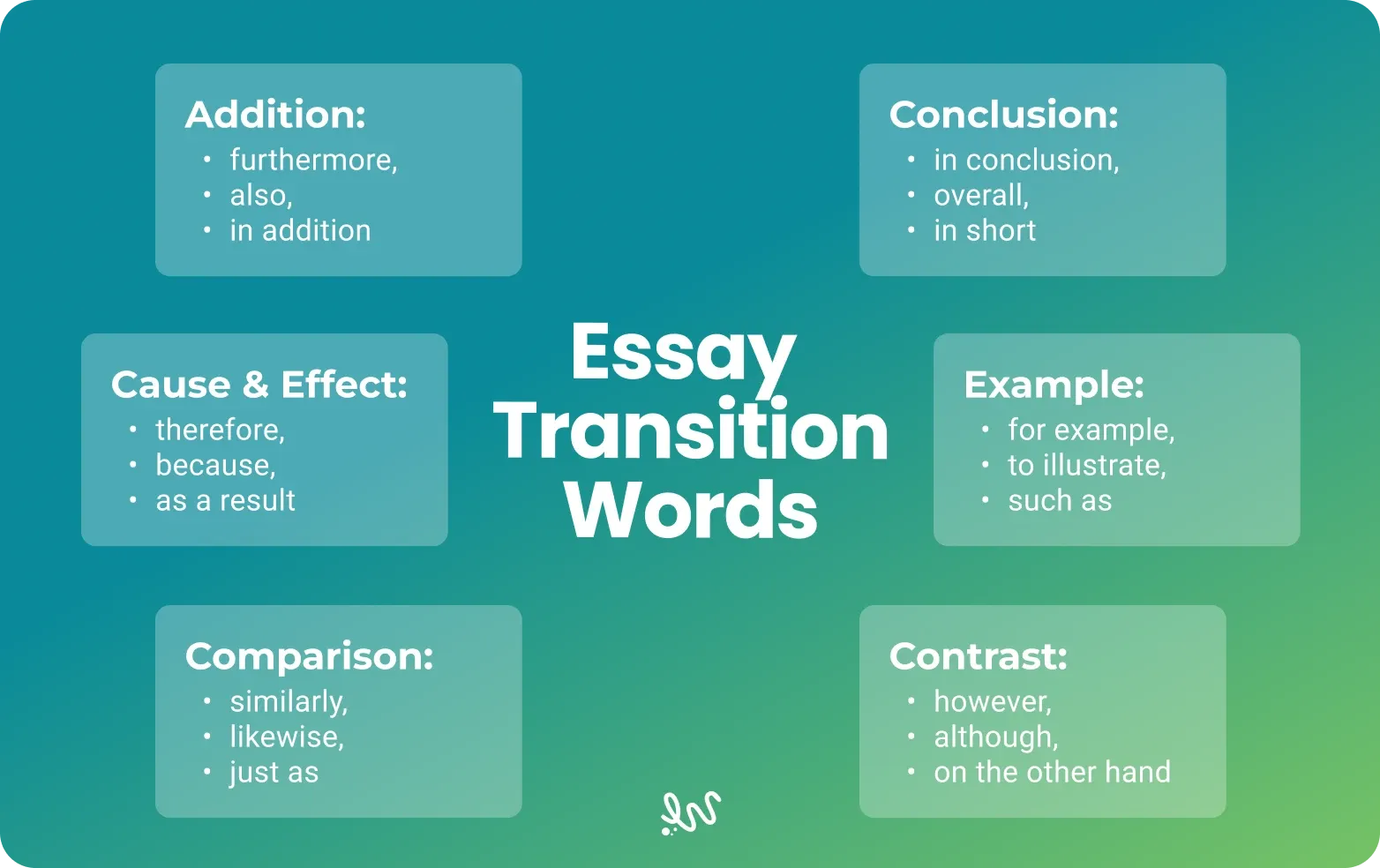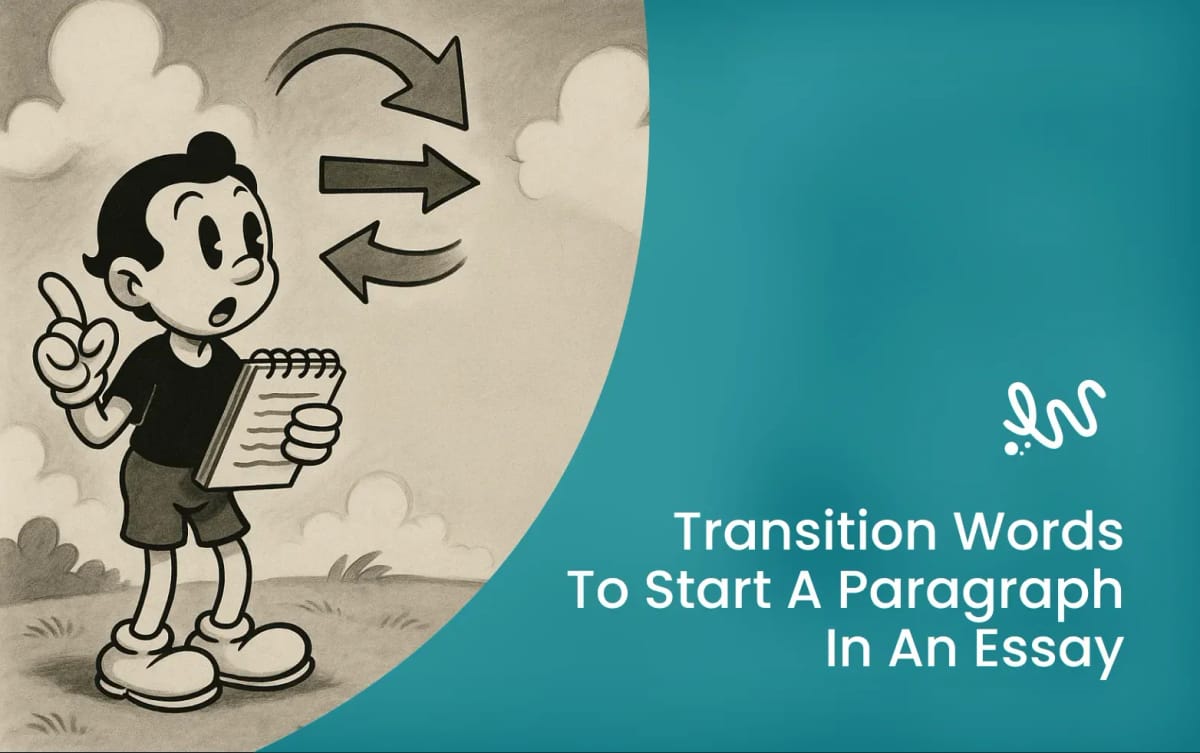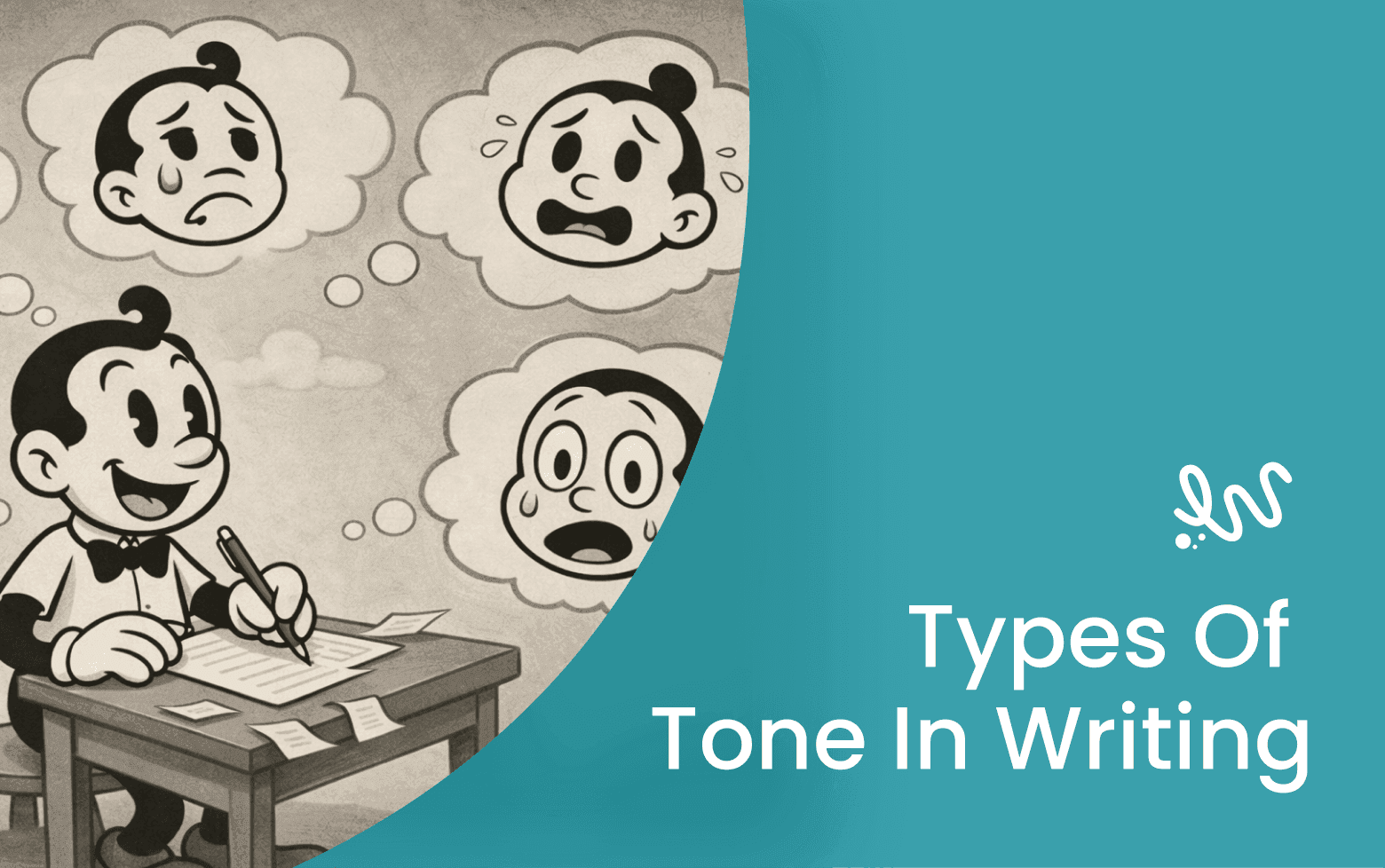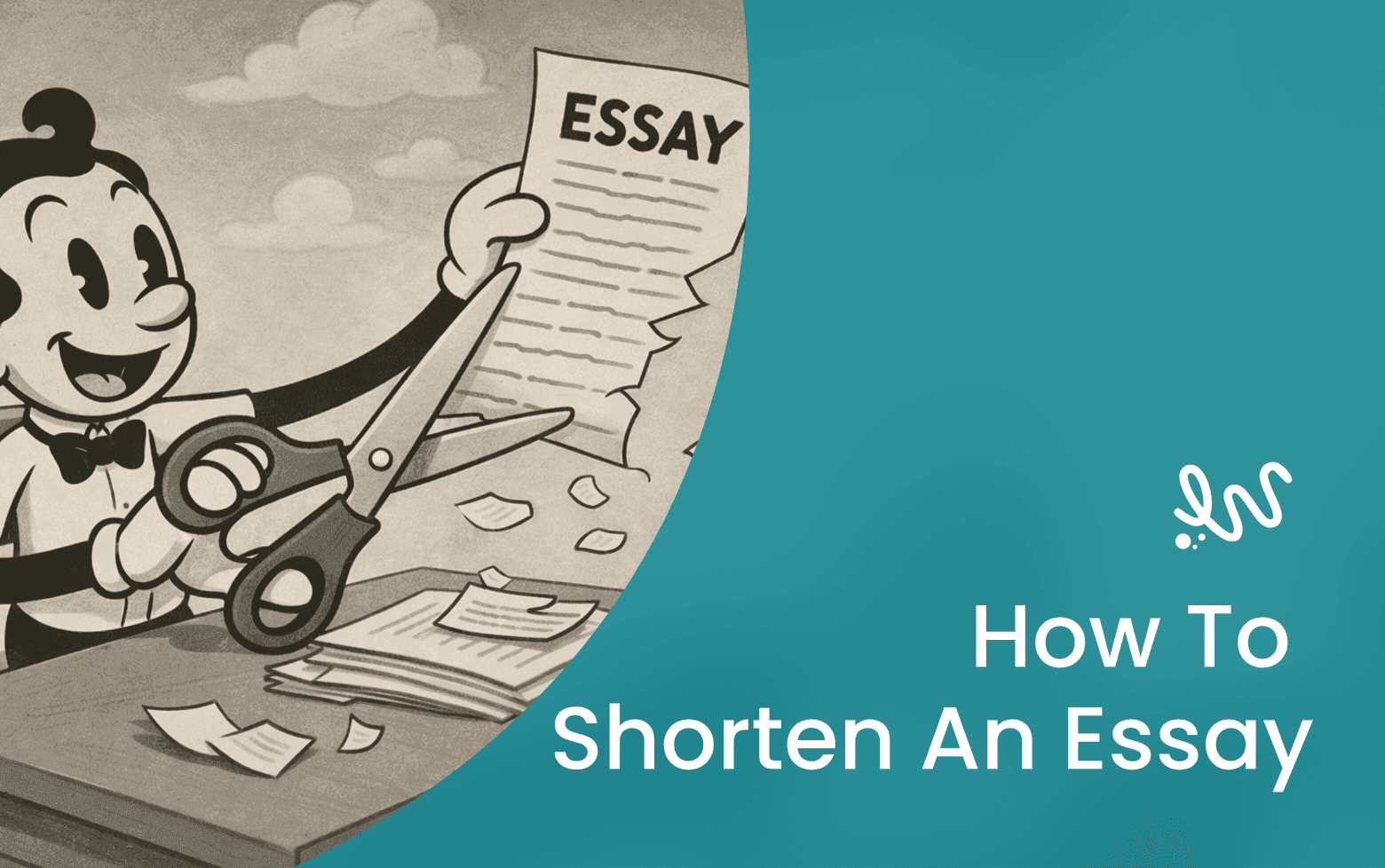Every student knows the frustration of writing an essay that feels choppy. You finish your draft, read it back, and the sentences sound like puzzle pieces that don’t fit. Studies show that 73% of U.S. 8th and 12th-grade students lack proficiency in writing, and 50% of U.S. high school graduates are not prepared for college writing.
That’s where transition words to start a new paragraph in an essay step in. They smooth the ride, carrying readers from one thought to the next without bumps. In this article, we’ll provide a list of examples that will help you ace your next essay.
And when the stress of writing builds up, WME stands as a platform where students can find whatever type of support they need the most.
Struggling With Essay Flow?

Understanding Essay Transition Words
An essay transition word is a word or a short phrase that links sentences and paragraphs, showing how one idea connects to the next in academic writing. With transition words, the path feels steady, guiding the reader the same way a good conversation naturally moves along.
Say you’re working on your first body paragraph about climate change. You explain how rising sea levels threaten coastal towns. Then you add: ‘In addition, warmer temperatures intensify storms.’ That quick phrase, in addition, links your previous statement to the new idea and helps the reader follow your argument into the next point.
How Transition Words Phrases Work
Transition words and phrases in essay announce what kind of relationship exists between sentences. ‘Because’ signals a chain of cause and effect. ‘Similarly’ pulls two thoughts side by side. ‘Nonetheless’ throws down a challenge. Take this example:
Students who sleep less than six hours perform worse on memory tests. Many undergraduates report pulling weekly all-nighters. Cognitive function declines with fatigue.
Students who sleep less than six hours perform worse on memory tests. In fact, many undergraduates report pulling weekly all-nighters, and as a result, cognitive function declines with fatigue.
The second version teaches the reader how to read the idea. First, a claim. Then, a confirming instance. Finally, the consequence.
Additionally, your choice of transition reveals how you think. Opt for ‘nonetheless’ instead of ‘but’, and you show that the contrast really carries weight. Pick ‘ultimately’ to start a conclusion, and you’re hinting that everything before was building toward this final analysis.
Transition Words Examples
Transitions for essays help readers see the logical relationship between ideas. Each type signals something different, whether you’re adding information, showing contrast, or drawing a conclusion. Below, you’ll find good transition words to start a paragraph in an essay examples.

Words That Add On
- Also
- In addition
- Furthermore
- Along with
- Equally important
- Moreover
- Coupled with
- Plus
Words That Show Cause and Effect
- Because
- Therefore
- As a result
- Due to
- For this reason
- Consequently
- Hence
- Accordingly
Words That Compare
- Likewise
- Similarly
- In the same way
- Just as
- Equally
- Parallel to
- Much like
- In a similar fashion
- Comparable to
Words That Contrast
- Although
- But
- Yet
- On the contrary
- Even though
- Nonetheless
- Still
- Despite
- In spite of
Words That Emphasize
- Above all
- Especially
- Significantly
- In particular
- Indeed
- Without a doubt
- Notably
Words That Provide Examples
- For instance
- Such as
- Like
- In other words
- Namely
Words That Show Importance
- Chiefly
- Primarily
- Most importantly
- Of course
- Largely
- First and foremost
- At the core
Words That Show Sequence / Order
- First place
- Second place
- Next
- After
- Finally
- Following
- Earlier
- At the same time
- Subsequently
Words That Summarize or Conclude
- In conclusion
- Overall
- In sum
- To summarize
- Ultimately
- In the final analysis
- On the whole
- For the most part
- In short
- As a result
- To wrap up
Words That Indicate Time
- Afterward
- During
- Immediately
- Later
- Meanwhile
- Until
- When
- Presently
- Soon
Words That Indicate Location
- Above
- Below
- Beyond
- Nearby
- Between
- Across
- Beside
- Here
- There
Words That Clarify
- In other words
- Simply put
- That is to say
- To clarify
- Namely
- Put differently
- Stated differently
- That is
- In simpler terms
- To put it another way
- Expressed simply
- In short
- To explain
- That means
- In plain language
How to Use Transition Words for Essay Effectively
When used well, transition words for different parts of an essay connect ideas smoothly. When misused, they distract or confuse. Here’s how to use linking words for different parts of an essay, with examples of what works and what doesn’t.
Good: ‘To begin with, education shapes not only individual futures but also society as a whole.’
Bad: 'In conclusion, education shapes futures…' (Never use concluding words in the opening.)
Good: 'Furthermore, studies show that students who write daily improve long-term memory.'
Bad: 'Furthermore, students write daily and they improve.' (Repetition feels clumsy.)
Good: 'Because many students lack sleep, their test scores drop accordingly.'
Bad: 'Because students lack sleep, their test scores drop.' (Overuse makes the sentence confusing.)
Good: 'On the contrary, group projects don’t always build teamwork.'
Bad: 'On the contrary, but group projects don’t always build teamwork.' (Doubling up is unnecessary.)
Good: 'In the final analysis, consistent study habits outweigh last-minute cramming.'
Bad: 'In the final analysis, cramming is bad.' (Too vague and abrupt.)
Need More Than Transition Words?

The Bottom Line
Transition words for essays to start a paragraph are the structure that keeps ideas connected. They turn scattered sentences into arguments with flow. Still, choosing the right ones matters just as much as avoiding the wrong ones. To keep your essay sharp, check this guide on words to avoid in essay writing.
And if you ever need more than just a transition word list, such as guidance on how to create arguments that hold together, WME is here with academic advice that takes you further than any word list on its own.
FAQ
What Are the Transition Words for Starting a Paragraph?
Common transition words for starting a paragraph include “to begin with”, “furthermore“, “in addition“, “on the other hand“, and “likewise“. These words signal a new point while connecting it back to the overall argument.
What Is an Example of a Transition in a Paragraph?
Example: “Social media creates instant connection. For instance, students can share resources in real time during group projects.” The phrase ‘for instance’ bridges the general idea and the supporting detail.
What Are Transition Words for Essays?
Paragraph transition words for essays are connecting words and phrases such as “therefore“, “in contrast“, “moreover“, “in conclusion“, and “as a result“. They guide the reader through the essay by showing logical connections between sentences and paragraphs.
Sources
- Achieve, Inc. (2005). Rising to the challenge: Are high school graduates prepared for college and work? A study of recent high school graduates, college instructors, and employers. https://www.achieve.org/files/pollreport_0.pdf
- National Center for Education Statistics. (2012). The nation’s report card: Writing 2011 (NCES 2012–470). Institute of Education Sciences, U.S. Department of Education. https://nces.ed.gov/nationsreportcard/pdf/main2011/2012470.pdf



